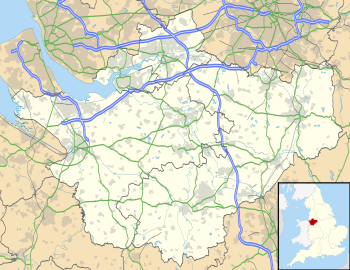In the early fourteenth century, tensions between villagers from Darnhall and Over, Cheshire, and their feudal lord, the Abbot of Vale Royal Abbey, erupted into violence over whether they had villein—that is, servile—status. The villagers argued not, while the Abbey believed it was due the villagers' feudal service.
Founded by Edward I in 1274, the Cistercian Abbey had been unpopular with locals from the start. This was primarily because it had been granted, in its endowment, exclusive forest rights which surrounding villages saw as theirs by custom, and other feudal dues they did not believe they had to pay. Moreover, the rigorous enforcement of these rights by successive abbots was felt to be excessively harsh. The villagers resented being treated as serfs and made repeated attempts to reject the Abbey's feudal overlordship.
The villagers' efforts ranged from appeals to the Abbot, the King's Chief Justice in Cheshire and even to the King and Queen; the latter, at least, appears to have been somewhat sympathetic to their cause. On each occasion, though, the villagers were unsuccessful and were unable to secure release from their villeinhood. The abbots, for their part, may have had significant financial pressures on them. Their house had commenced major building works in 1277, but then lost much of its early royal funding following Edward I's invasion of Wales the same year, which diverted both his money and masons from them. This may have accounted for the strict enforcement of their rights. Their tenants' struggle turned increasingly violent from 1326.
The dispute was mainly led by the villagers of Darnhall, in conjunction with their neighbours, particularly those from the nearby village of Over. On several occasions they suffered imprisonment when their appeals failed, and they were also often fined. On one occasion, in an attempt to appeal to Abbot Peter, the villagers of Darnhall and Over followed him to King's Cliffe Hunting Lodge, where the Abbot was meeting the King. Peter was himself appealing for royal assistance against his recalcitrant tenantry. The villagers met him in Rutland on his return journey; an affray broke out, the Abbot's groom was killed, and Peter and his entourage were captured. The King soon intervened and released him; the Abbot then promptly had the villagers imprisoned again. Abbot Peter did not confine himself to confronting his serfs. He also engaged in feuds with the local gentry, and either at their hands or those of his erstwhile tenants, he was murdered in 1339. Nothing is known of any resolution to the dispute, but serfdom was in decline nationally and Peter's successor may have had other local troubles occupying his attention.
